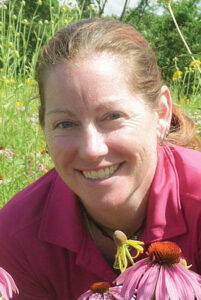 Habitat enhancement can be as simple or as complex as you want to make it and is something that rural landowners, farmers and urban landowners can all take part in. The overwhelming part can be finding a good place to start, but luckily there is a plethora of programs and partners to support you.
Habitat enhancement can be as simple or as complex as you want to make it and is something that rural landowners, farmers and urban landowners can all take part in. The overwhelming part can be finding a good place to start, but luckily there is a plethora of programs and partners to support you.
Technical assistance from an expert can help you determine where to start once you’ve decided on your goals. Maybe you have a particular species you’d like to provide for, an issue with an invasive species to focus on, improve an area for hunting, or perhaps you would like to do something for aesthetic value. Working with a habitat expert or biologist can focus your ideas into a management plan with practices for achieving your goals. Practices can have significant benefits for water quality, soil health, plant communities and wildlife. Once you know what you want to do there are also programs that provide financial help.
Illinois is fortunate to have many great organizations working together for habitat. Agencies and organizations such as the Illinois Department of Natural Resources, U.S. Fish and Wildlife Service, Ducks Unlimited, National Wild Turkey Federation, Natural Resources Conservation Service, Farm Service Agency, Pheasants Forever and Quail Forever are just a few of the groups that can provide help for landowners.
Pheasants Forever and Quail Forever focus on private lands and our biologists work with Farm Bill programs, through the U.S. Department of Agriculture’s Natural Resources Conservation Service and Farm Service Agency. The Conservation Reserve Program has benefited landowners and wildlife habitat by restoring grasslands, wetlands, riparian areas and pollinator habitat. It is the nation’s largest conservation program.
The Conservation Reserve Program or CRP has great benefits for our common wildlife species, such as deer and pheasants, but it also provides important habitat for less common species, such as grasslands birds. Many of these species have a conservation status of Species of Greatest Conservation Need or greater, meaning their populations have been negatively impacted and they need help.
Beneficial habitat practices can include removal of invasive species, prescribed burning, forest stand improvement practices and planting pollinator habitat. Sometimes not doing something can be beneficial such as not spraying herbicides at certain times of the year, not mowing an area or not farming a less productive area and leaving it in cover for wildlife. This can be done on small portions of your land or entire fields.
There has been a lot of conversation about monarchs and beneficial pollinator species recently, which has sparked an interest in conservation for many and has them wondering how best they can help in this situation. Director Rosenthal wrote about monarchs in the last issue and mentioned the easy, productive ways we can all help monarchs. It can be as simple as planting species of milkweed and leaving areas un-mowed. If enough people do

pheasantsforever.org
this, the effect can be profound. You can also help in larger ways by planting pollinator habitat. Planting diverse mixes that have wildflower blooms throughout the growing season will greatly benefit a wide variety of insects. This also has an effect up the wildlife food chain as many species rely on insects as a source of protein.
Something everyone can do is educate themselves about conservation. With the organizations mentioned above, and many others, there are numerous ways for people to introduce themselves to conservation and begin to get involved. There are two things that above all others impact wildlife — habitat and weather. We can’t change the weather but we can improve the quality and quantity of wildlife habitat.
For more information, please visit www.ihuntil.com









